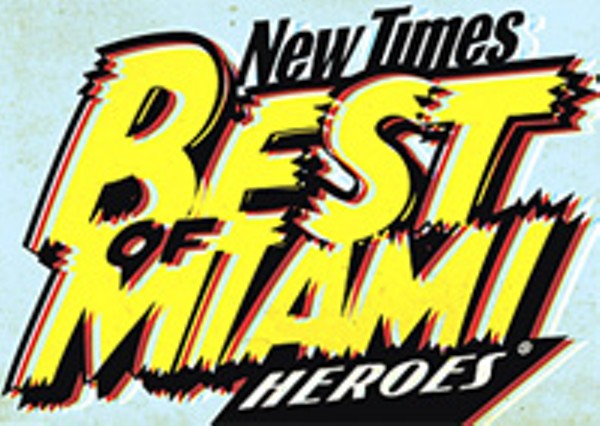Best Microbrewed Beer
The Miami Area Society of Homebrewers (MASH)
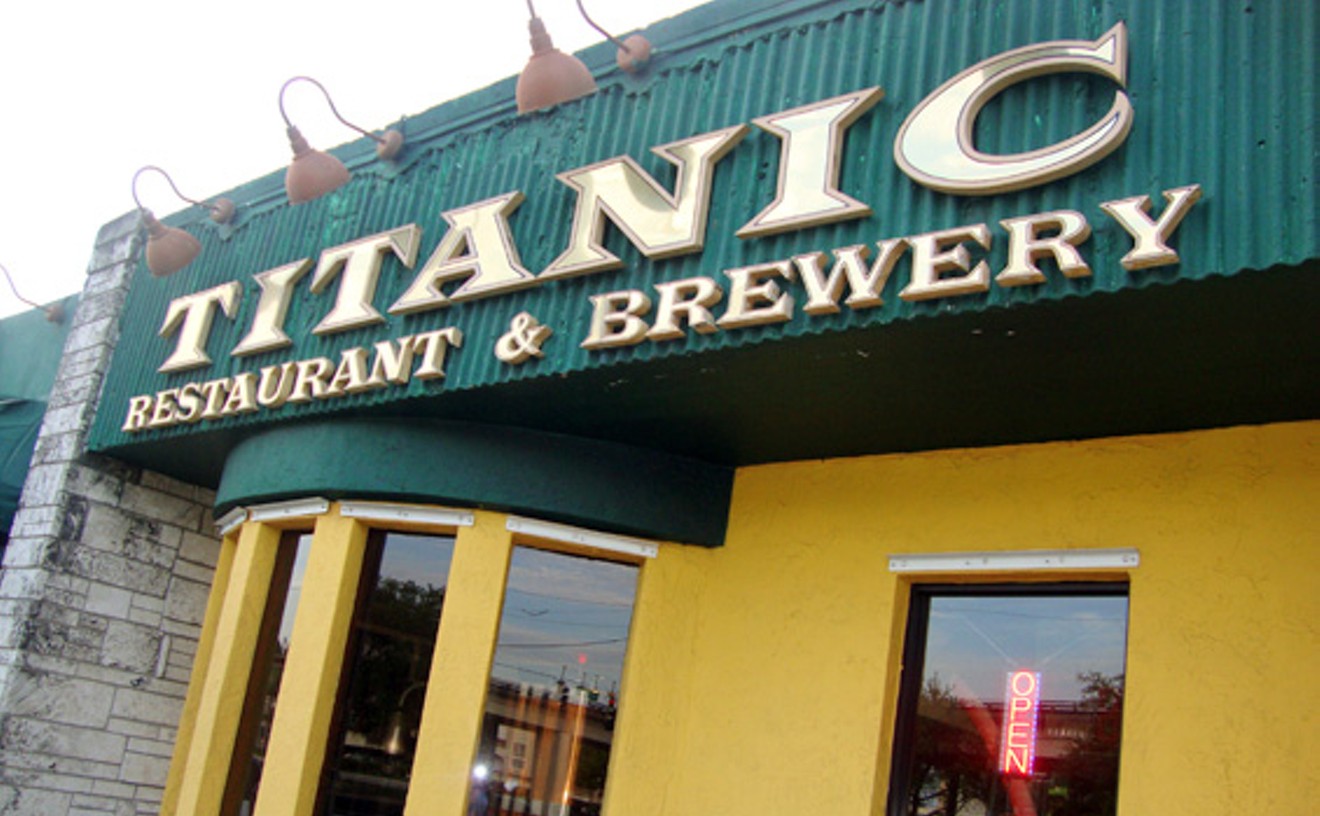
Miami is not a beer town. There are a few good brewpubs (the Abbey, Titanic) but generally, it's all Corona, pricey Italian piss-water, and domestic swill. As a result, the 50 paunchy members of the town's most beer-hungry citizenry have taken to brewing in their homes. On the third Monday of every month, they hunker down at a long table at the far end of the Titanic to compare brews. Of late, the pub's kindly owner has allowed them access to his equipment for custom batches. Their creations are then proudly poured for just a few days from the bar's hand-pulled cask. Every year hundreds of gallons of Miami-Dade County water are converted to Cuban coffee stouts, coconut wheats, avocado meads, and more. While you choke down $8 Heinekens on the beach, this intrepid band of cranks, weirdoes, and alcoholics of discriminating taste pump rivers of delicious drink out of their garages, closets, and tool sheds. Join them, or be doomed to drink what your distributor wants you to!
- 5813 Ponce de Leon, Coral Gables, 33146 Map
- 305-668-1742
- titanicbrewery.com
Best Bagel
Harriet & Bob's Bagel Cove
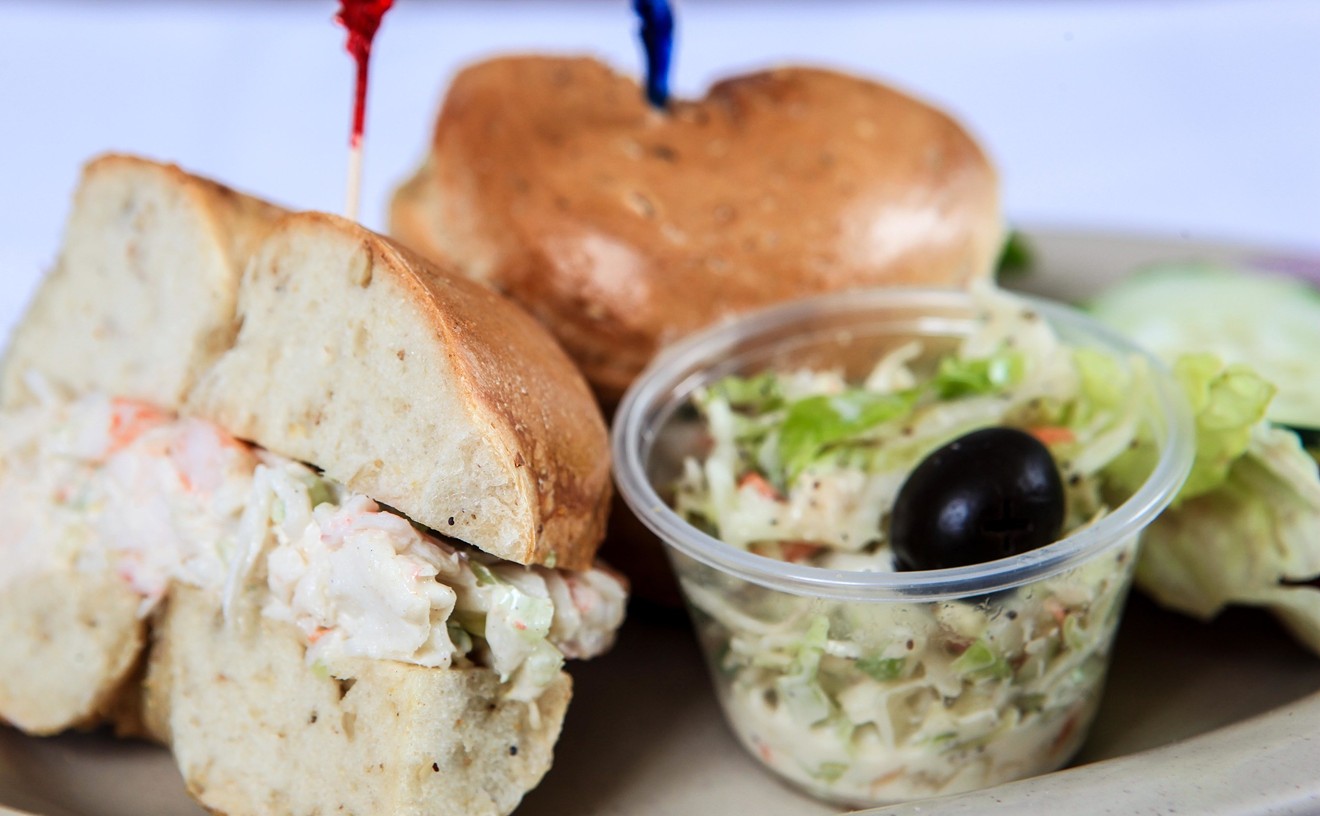
Bagel Cove
In New York, a bagel is a bagel. Everywhere else, a bagel is bread. Some say New York City's unique way with bagels has something to do with the water, but if you know where to look you can actually find a decent specimen in the sixth borough, too. Harriet and Bob, a pair of transplanted New Yorkers (go figure), know it's only a bagel if it has the right blend of hardness on the outside and chewiness within. Just follow the flocks of white-haired snowbirds and Q-tip-headed locals who jam the entrance of Harriet & Bob's on the weekends. Grab a table or stand in the to-go line, and order up a toasted sesame with butter ($1.89), an everything with cream cheese ($2.90), or onion with vegetable cream cheese ($4.99). The bustling Bagel Cove, opened by Harriet in 1988 (Bob is her third business partner), also offers everything under the Jewish-delicatessen-style sun — from challah french toast and blintzes to matzoh ball soup and smoked fish — but it's the bagels that'll keep you rolling back. If you're lucky a member of Bob's crew will be toting out a plastic laundry basket filled with a warm, fresh batch. You might even think you're in New York — except you can drink the water.
- 19003 Biscayne Blvd., Aventura, 33180 Map
- 305-935-4029
- bagelcove.com
Best Caribbean Restaurant
The Bahamian Pot Restaurant

A ton of perks come with being the official "gateway to the Americas." Afro-Cuban bands and Brazilian bikinis aside, we are blessed with access to restaurants serving awesome food from exotic locales beyond the home of processed cheese. One such place is the Bahamian Pot, a trip to the Caribbean that doesn't require a passport — just your hungry belly. The menu is overflowing with island favorites like conch chowder, oxtail, plantains, stewed fish, and Johnny Cake; and as an ode to good ol' American eatin', the menu is also home to soul-food staples like fried chicken, pork chop sandwiches, and an awesome lemon cake. The chefs at the Bahamian Pot have perfected the art of just-right spice; never ever bland, yet nothing that will knock your taste buds from your tongue. And since nothing at the Pot is over $15, no matter what you order your wallet will still be as full as your tummy. The entire menu is sublime, but a must-try is the guava duff, a boiled fruit-filled ball of dough, also known as the perfect marriage between Miami and the Caribbean.
- 6301 NW Sixth Ave., Miami, 33150 Map
- 305-759-3408
- www.facebook.com/TheBahamianPot/
Best Croissant
Uva 69

Uva makes its croissants on-site and uses real butter. The result is flaky and airy, best enjoyed with a cafe au lait, while seated in the shade of the outdoor restaurant. Varieties abound: plain ($1.88), chocolate ($2.68), and ham and cheese, spinach and cheese, or almond (also $2.68). If you're not feeling French, they also have guava pastries and apple turnovers ($2.15).
- 6900 Biscayne Blvd., Miami, 33138 Map
- 305-754-9022
- www.uva-69.com
Best Haitian Restaurant
Cliff's Restaurant & Catering
Everyone in this neighborhood knows the Jamaican-born Cliff, who has been cooking up a storm in his ramshackle roadside restaurant since 1986. It's difficult to find anybody around here, in fact, who hasn't sat down at one of the stools lined along a counter and dug into curried shrimp, stew peas, pork chops, cow feet, or other West Indian specialties that Cliff's crew does just right. Lunch specials include any of the aforementioned, with pigeon rice, steamed cabbage, fried plantains, and fruit punch or lemonade — for a downright neighborly sum of $5.50. The same price brings a breakfast of yam, banana dumpling, and callaloo, but we haven't even mentioned the really lip-smacking stuff found at Cliff's: curried goat with a devilish ginger-masala kick, and barbecued and/or jerked chicken and pork ribs that get slow-cooked in a black barbecue smoker outside. Ask for the hotter barbecue sauce, which is perked with piquant Scotch bonnet chilies, and request a Red Stripe Beer to chug along. You are set. Cliff's roots, rocks, and reggaes on weekend nights, when giant speakers gush island music until 3:00 a.m
- 10740 NW 7th Ave., North Miami, 33168 Map
- 305-754-2679
Best Delicatessen
Sam's
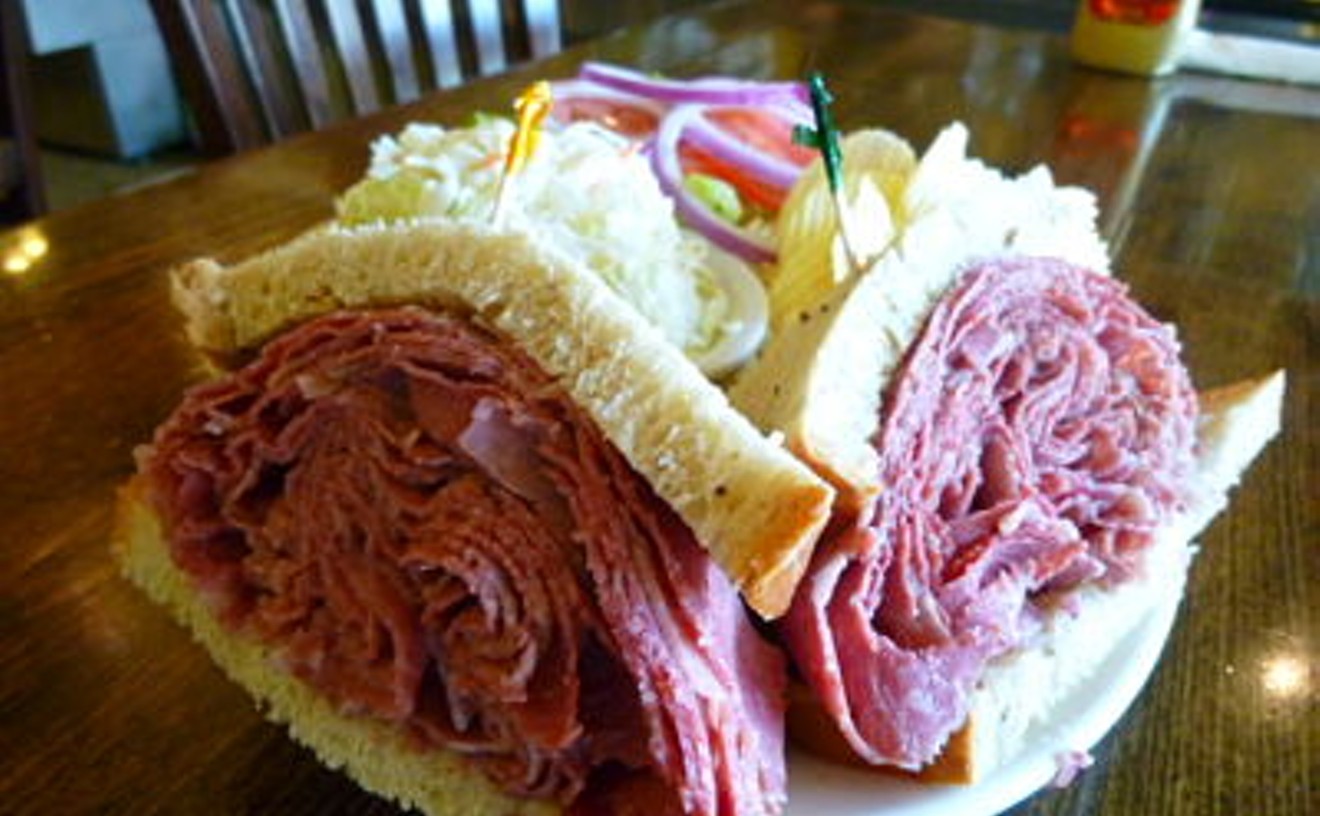
It's all about the pastrami. In Miami, the word "deli" is used to refer to almost any eatery that has any kind of food behind glass counters. But New Yorkers know that "deli" doesn't merely mean a place. Deli is also a food group. And the assumed word preceding it is "Jewish." When you eat deli, you're talking pastrami, corned beef, brisket, all-beef franks with sauerkraut, odorous housemade sour and half-sour pickles, "salads" (like potato and macaroni, not mesclun; cole slaw is as green as it gets with deli), and a belly-busting assortment of the tasty carbs that nineteenth-century Jewish immigrants from Eastern Europe brought to America: potato pancakes, knishes, kasha, crusty caraway-seeded rye bread, and so on. The almost-two-year-old kosher deli Sam's has all these items, and the meats are especially terrific. Corned beef and brisket are both homemade. And while the pastrami isn't (because it requires a special smoker), it's prepared according to the deli's own recipe, resulting in a product that, like good Cuban food, is beautifully spiced but not at all spicy. Both corned beef and pastrami come either lean or regular — the latter meaning properly fatty (the extra flavor is well worth the cholesterol, though pricey: $21.95 per pound versus $17.95 for regular meat). What Sam's hasn't got is smoked fish. But since Arnie & Richie's, just a block away, has fabulous nova, pickled herring, and so on, the absence is not annoying. After one of Sam's mega-size sandwiches ($11.99 for pastrami or corned beef, $.99 more for lean; $12.99 for brisket), diners could use the walk.
- 740 41st St., Miami Beach, 33140 Map
- 305-538-1616
Best Japanese Restaurant
Yuga Restaurant
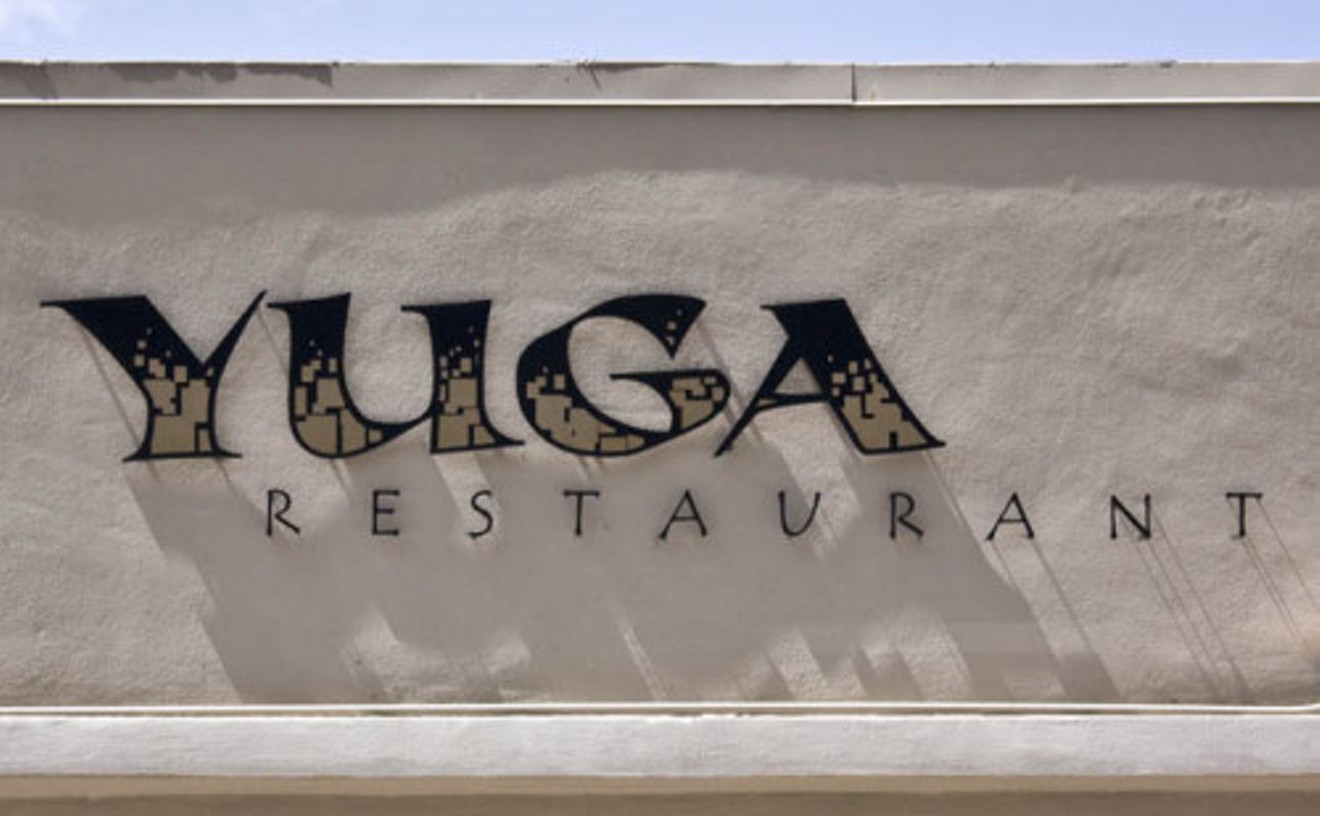
I. sage-tone walls
gray slate floors
a single yellow tulip in a glass vase
gray slate floors
a single yellow tulip in a glass vase
II. big-eye tuna with sparkling orange roe
white fish in ume-plum sauce
painting pan-Asian influences
upon white plates
calligraphy on scroll
III. o satoimo roll,
softly fried, golden-brown soybean skin
enveloping
whipped taro and blue crab —
be still, little blossom!
IV. 58 chairs
24 small plates
four nightly specials
between $6 and $14
- 357 Alcazar Ave., Coral Gables, 33134 Map
- 305-442-8600
- www.yugarestaurant.com
Best All-You-Can-Eat Sushi
Tokyo Bowl
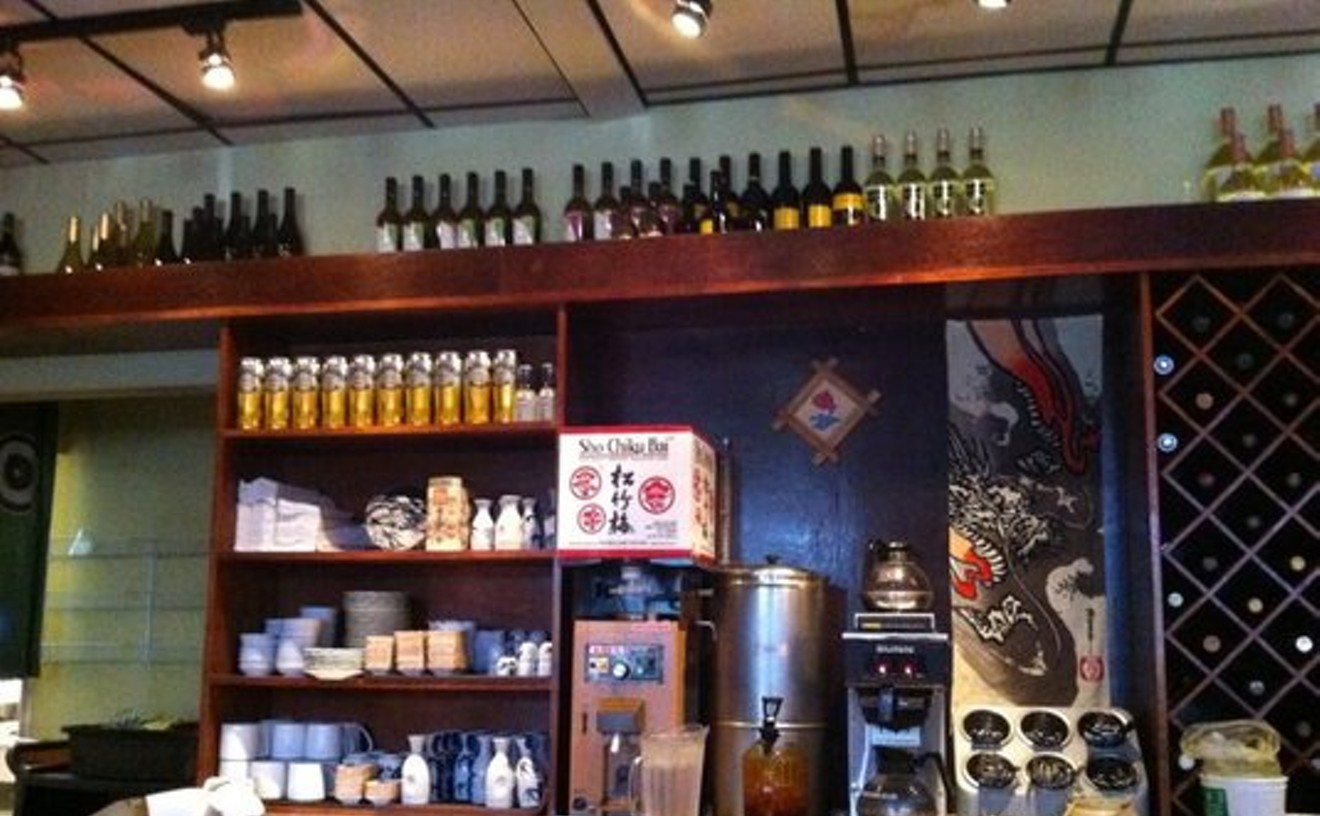
Yes, there are plenty of swank and sleek sushi joints on the beach, with low lighting and creative hand rolls. But sometimes all you want is sushi, and lots of it. California rolls have become the comfort food of the 21st Century, and at Tokyo Bowl — a small restaurant with big flavor — you can get waaaay comfortable in a roomy booth and order all the rolls you want. For $14. That price also includes soup and salad and a small dessert. All of the staples are here: octopus, eel, tuna, tempura. Service is efficient, competent, and friendly. Ambiance is laid-back, with soft jazz and a wooden Buddha or two smiling down on your tekka roll. If you can't wait around, there's takeout and a drive-through window. And a word about the dessert: Try the fried cheesecake roll. We were skeptical, but the oozing, creamy brown-sugar-cheese mixture was almost orgasmic. In a comforting way.
- 12290 Biscayne Blvd., North Miami, 33181 Map
- 305-892-9400
Best Place To Pick A Peck Of Pickled Peppers
Kalinka Russian-European Delicatessen
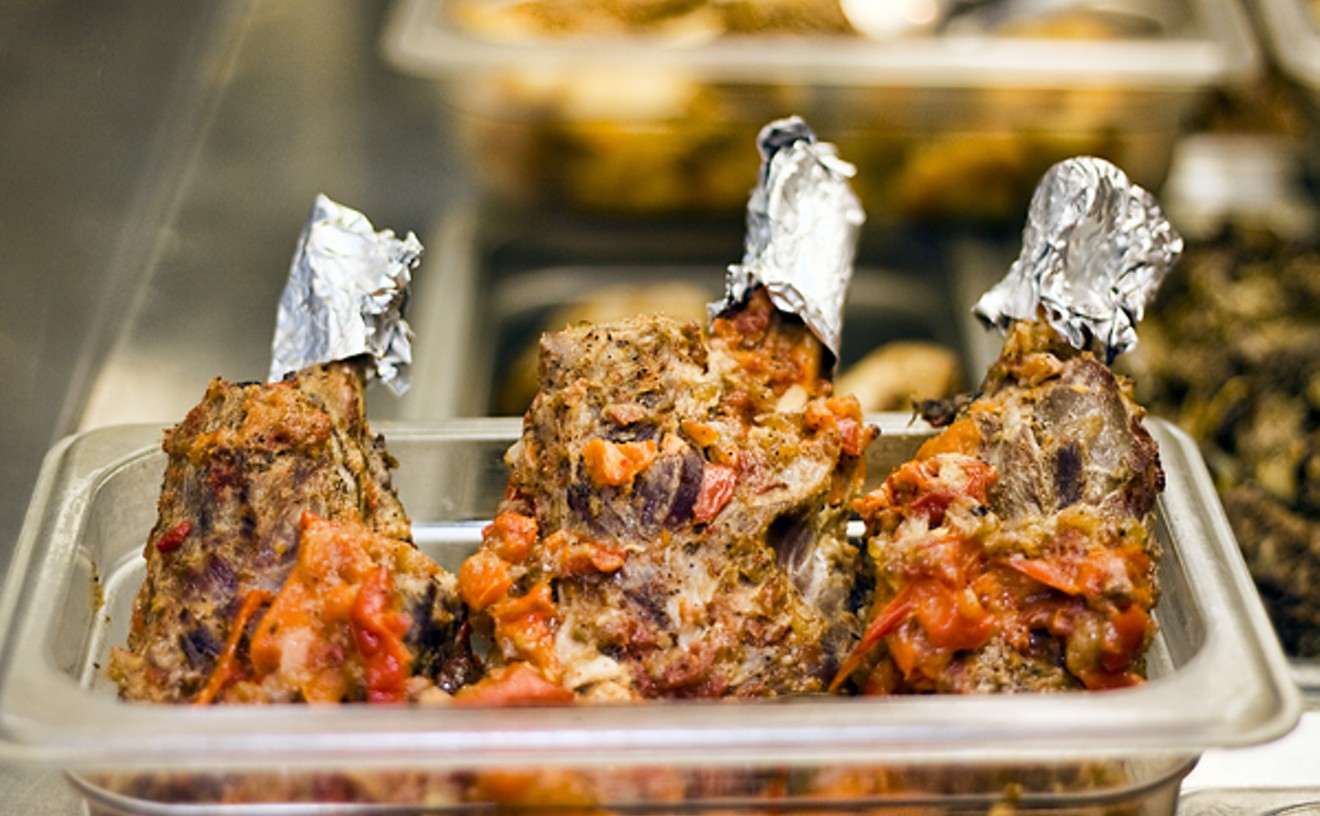
George Martinez
Actually this is the best place to pick a peck of all sorts of specialties from Mother Russia, which is why immigrants from the Old World flock to this deli/grocery from several counties away. They come for the herring, halvah, kasha, caviar, candies, kefir, smoked fish, sundry sausages, Georgian wines, and Baltika beer. And they are also drawn here for various home-style lunches, which are heated up and served at a smattering of tables in the front of the market (there is additional seating outside). These are big, hearty foods such as stuffed cabbage, stuffed peppers, pork steak in brown sauce, fish croquettes, blintzes, a divine beef stroganoff, and the drool-inducing duet of Russian dumplings — vareniki and pelmeni. Pass the sour cream, loosen the borscht belt, and save some appetite (ha!) for pan-fried, puck-shaped, sweetened cottage cheese cakes called sirniki. Many items are under $10, which makes this Little Kiev's biggest bargain.
- 18090 Collins Ave., #24, Sunny Isles Beach, 33160 Map
- 305-705-9333
- www.facebook.com/kalinka.deli/
Best Health Food Store
Apple-a-Day Natural Food Market
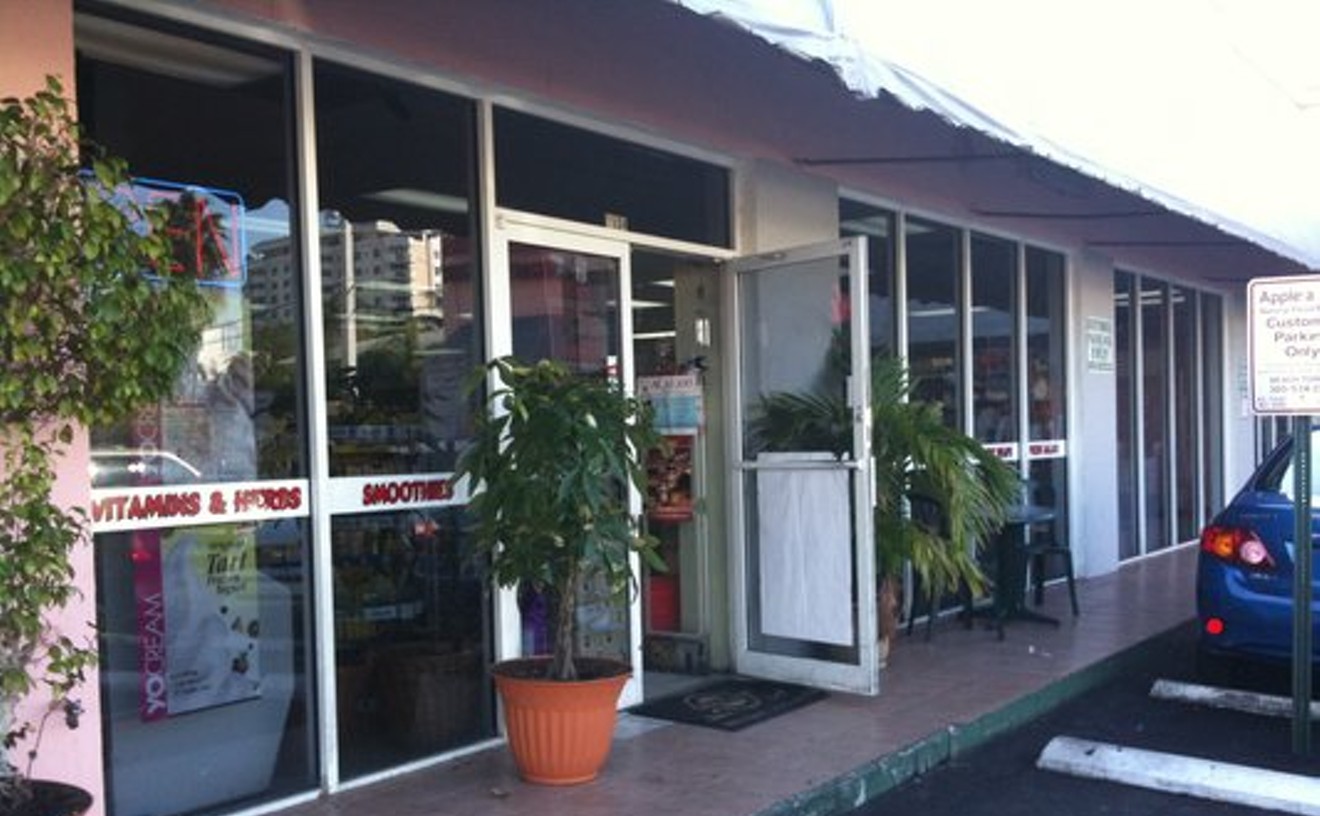
There are two types of health food stores in this world: Giant chains with lots and lots and lots of goods, and small, privately owned places with much less stuff. So why choose the latter? For the personal touch. For the laser-beam focus on truly nutritional foods, not hamburgers and Häagen-Dazs masquerading as such. For integrity, goddammit. Apple-a-Day Natural Food Market has been serving the South Beach community for fifteen years. Their soups, salads, smoothies, and vegetable juices can go mano a mano with those of the big guys, and nobody can top the signature marinated tofu sandwich with hummus and vegetables — $6.95 with a cup of soup. But it takes more than an apple a day to keep the doctor away — the aisles of vitamin and supplement products here comprise the most extensive selection in town. So raise a glass of soy milk to the little health food store that could.
- 1534 Alton Rd., Miami Beach, 33139 Map
- 305-538-4569


